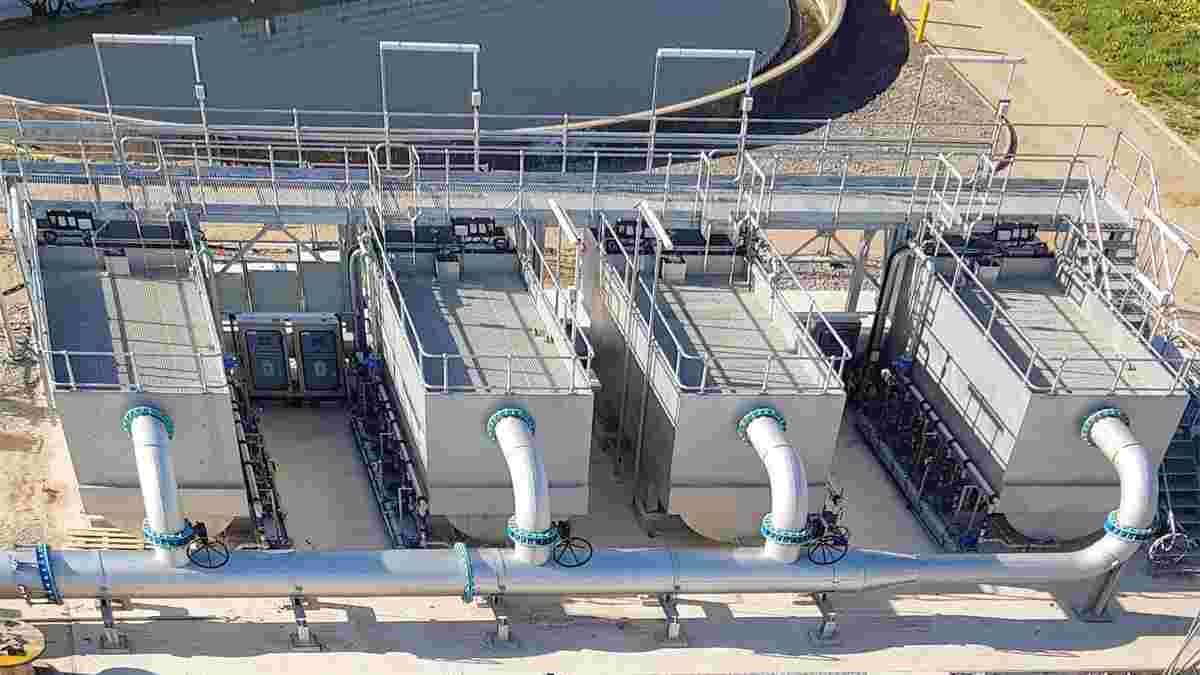

The use of tertiary treated wastewater or sewage water is gaining momentum in the country for various activities other than human consumption with the twin objective of saving the previous clean drinking water and disallowing the dirty sewage to out-fall in rivers and lakes hampering natural ecology of the place. In a key development the Chandigarh Municipal Corporation will be investing almost one hundred crore rupees to expand the pipeline connections network in the Union Territory to further the supply and use of tertiary treated water.
The city administration will issue a tender for coming July to add 50km extra to the existing network of 400km that will supply tertiary water to southern sectors, industrial zones and green covers. The network expansion is taking place under the Atal Mission for Rejuvenation and Urban Transformation (AMRUT). The exact cost of the project is ₹97.25 crore.
In the tertiary treatment, wastewater which is collected through the sewage network of the city is treated to make it suitable for gardening, horticulture, irrigation etc. This is done through chemical treatment and the sedimentation process. The biochemical oxygen demand (BOD) of this treated water needs to be less than 10 mg.
The expansion of tertiary water supply through expansion of networks is also one of the key objectives of Chandigarh’s City Water Action Plan (CWAP).
The move is expected to reduce stress and dependence on ground water for drinking needs of the residents.
The Plan
The Chandigarh civic body is motivating eligible houses of the city to take tertiary water connections helping the administration to save nearly 10 – 12 million gallons of clean drinking water every day. Presently, households and industries use potable water gardening and related purposes. The municipal corporation has upgraded three sewage treatment plants while the remaining two are being worked upon.
Chandigarh Municipal Corporation Commissioner Anindita Mitra, said, “MC had started laying tertiary water pipelines in 1990 and initially covered sectors 1 to 12, and 16. Currently, almost 80% of the sectors have been covered and the remaining will get tertiary water through the CWAP. At present, 10 MGD of it is being used to maintain parks, green belts and fountains. It is also being supplied to a few houses. Plans are in place to expand the network so as to increase the treated water’s utilisation to 20 MGD.”
She added, “By increasing the supply to 20 MGD, MC plans to increase the water’s consumption. The city has multiple open spaces, parks and houses with big lawns, where water is required for irrigation. As many as 680 parks and green belts are using tertiary treated water and after expansion, water will be supplied to all of the 1,800 parks in the city. Also, the under-construction public toilets are being given dual pumping so that TT water can be used.”
Recently, Delhi Jal Board has also added a fresh network to supply tertiary water to industries and large public parks in the national capital helping the authorities save precious drinking water and also reducing pollution load from the Yamuna River.
1. The mandate for blending Compressed Biogas (CBG) with natural gas has come into effect…
Andhra Pradesh is striving towards greening its energy sector with quite some speed. In a…
With an objective to bolster India’s green energy goals, a Tripartite Agreement has been signed…
The Union MNRE Minister Pralhad Joshi launched the Green Hydrogen Certification Scheme of India (GHCI)…
India’s energy conglomerate Bharat Petroleum Corporation Limited (BPCL) has commissioned a 5MW green hydrogen plant…
In a historical development, the European Space Agency (ESA) has successfully launched its pioneering ‘Biomass’…